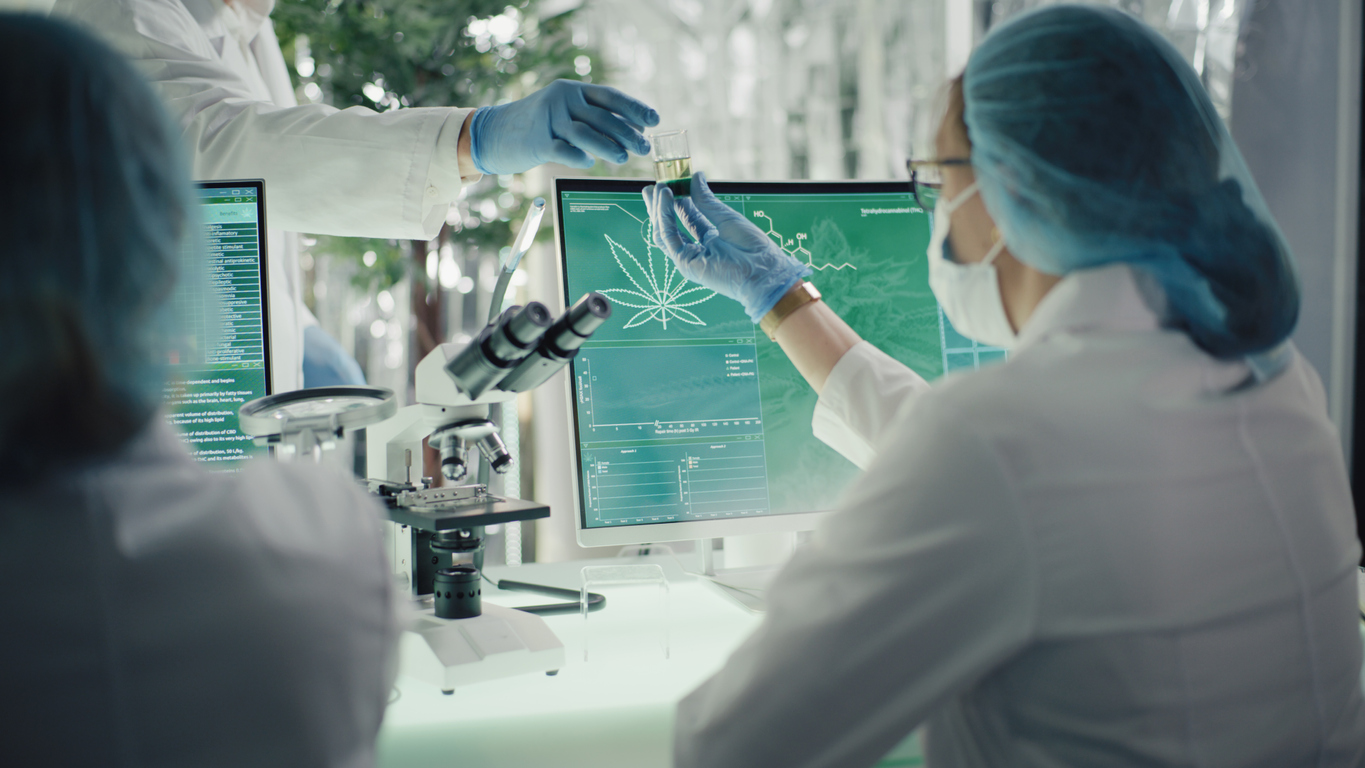As medical cannabis has gained popularity as an effective treatment for a wide variety of conditions and symptoms, many people are now wondering how to choose the best delivery method for their situation. The tincture vs edible debate still continues, but which is right for you? In this article, we will compare these two popular consumption methods and explore the differences, benefits, and drawbacks of each to help you decide which is the best choice for you.
What is a THC Tincture?
Tinctures are a liquid that can be infused with cannabis and are classified as cannabis concentrates, although many users treat them like edibles.
Tinctures have been used for medicinal and herbal purposes throughout history. The first documentation of cannabis tinctures in the West was in a medical journal in 1843. Typically, tinctures are taken sublingually and held under the tongue for 10 to 15 seconds to absorb through the mucus membranes. They can also be infused into food or drinks or applied topically to treat various skin conditions.
There are several types of tinctures, including full-spectrum, broad-spectrum, and isolates.
- Full-spectrum tinctures contain all of the cannabinoids and terpenes found in a given cultivar, including THC, CBD, CBG, CBN, myrcene, caryophyllene, and more.
- Broad-spectrum tinctures are similar to full-spectrum, but they don’t contain THC.
- Isolates are the least common type of tincture, as they contain only one cannabinoid, such as THC or CBD. Tinctures can be made with various solvents, including alcohol and glycerin, but most use MCT oil, olive oil, or coconut oil.
Benefits of Tinctures vs. Edibles
One of the benefits of tinctures is that they make it easy to get precise doses. Particularly useful for those who use them for therapeutic or medical purposes, they come with a measured dropper so you can take exactly how much you need.
Another great thing about tinctures is that they frequently only have a few simple components, like MCT oil and cannabis. Therefore, you can choose the best ratio for you from various options.
Additionally, tinctures may contain more cannabis than edibles do. THC, CBD, and other cannabinoids can total up to 1,000 milligrams per bottle in some products. This is fantastic for those with a higher tolerance or who want their goods to last longer.
Tinctures have a faster onset time. Because many users consume tincture sublingually, the belief is that tinctures absorb more quickly into mucus membranes. The effects of sublingual products are typically felt within 15 to 30 minutes. It is recommended to wait 2 hours between doses to ensure each dose has plenty of time to take full effect. Tinctures can also be applied topically.
What is an Edible?
Edibles are consumable items, including food and beverages, infused with one or more cannabis concentrates, such as rosin, hash, RSO, or distillate. These products are frequently available for purchase at legal dispensaries and are typically dosed in 5-10mg increments of THC or CBD.
Edibles include classic baked goods like cookies and brownies, conventional chocolate bars and gummies, and unique infused products like extra virgin olive oil, hot sauce, granolas, hard candies, and beverages. In addition, homemade edibles can be produced using infused fats and oils, such as butter.
Benefits of Edibles vs. Tinctures
Like tinctures, one of the primary benefits of edibles is their precise dosing. They come in packages with pre-measured dosages, making it easy for users to consume within their comfort zone. Typically, each piece contains 5-10mg of THC or CBD.
Edibles also offer various types and flavors, such as classic caramels, peanut butter cup minis, and cookies n’ cream chocolate bars. Some edibles even contain additional cannabinoids like CBN or CBG blended in.
For novice users, edibles are less intimidating than tinctures, as they are a gentler introduction to the psychoactive effects of cannabis. In addition, edibles offer a more gradual onset of effects, unlike smoking or vaping.
Another advantage of edibles is their intense effects. When smoked, cannabis swiftly enters the bloodstream via the lungs and reaches the brain in minutes. On the other hand, when consumed in edible form, it undergoes digestion in the stomach and liver, producing 11-hydroxy-THC. This can lead to a more potent and heightened experience for the user. For those with a higher tolerance, edibles may be a more effective means of achieving the desired effects.
The effects of consuming edibles may persist for 6 to 12 hours, and some professionals have suggested that residual effects could endure for as long as 12 to 24 hours.
Edibles are also typically priced reasonably due to their widespread availability, efficacy, and ease of production.
Tincture vs. Edible: Choosing What’s Right for You
Need help deciding between tinctures vs edibles? While both have their advantages, it’s important to assess your individual needs before making any decisions. Tinctures are often more potent and longer-lasting, while edibles can provide a more flavorful and affordable experience. However, with so many options available, it’s easy to feel overwhelmed.
As a dedicated clinic, Pause Pain & Wellness is committed to ensuring you have the support you need to treat your symptoms. In addition, our experts go above and beyond to keep you in compliance with Mississippi law, so you can keep your medical marijuana card for as long as you need it. Contact us today at 833-940-5060 to schedule an assessment and get personalized guidance on which option is right for you. Don’t let confusion or uncertainty stand in the way of your wellness journey.

